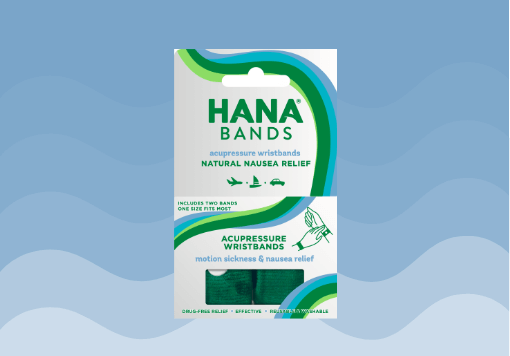
To most women who have experienced pregnancy, the term “morning sickness” is laughable.
Although some women may only experience nausea that comes and goes, the majority know it better as "all-day sickness." Few women escape the sickness of early pregnancy:upwards of 70% of all women experience vomiting, and 80% experience some sort of nausea during their first trimester.
Symptoms of Morning Sickness
Morning sickness can take many different forms for women. Some women experience food aversions that make them feel queasy. Other women have some vomiting, and about 1-2% of pregnant women experience the worst morning sickness of all: hyperemesis gravidarum. HG is characterized by severe vomiting, weight loss, electrolyte imbalance, and dehydration. The public became more aware of HG afterKate Middleton suffered through it during her three royal pregnancies.
Causes of Morning Sickness
The cause of morning sickness is unknown, but scientists have some theories as to why most expectant mothers experience it:
- Genetics
- Evolutionary Adaptation
- Vitamin Deficiency
- Hormones
The good news is that morning sickness isn’t forever, although it can sometimes feel like it when you’re in the throes of nausea. Morning sickness usually tapers off around 12-14 weeks, but some women can experience nausea up until giving birth.
Remedies for Morning Sickness
Experts discourage most women from taking medication to counteract morning sickness, and doctors typically only give prescription medication for the most severe cases. There are natural ways to help relieve morning sickness, though.
How can you separate the old wives' tales from the morning sickness remedies that actually work? We've put together the most effective cures that can help bring an end to nausea and vomiting.
Read on to discover the tried and true morning sickness remedies that really work.
Give Yourself Extra Time in the Morning

One of the best ways to help morning sickness is by not rushing yourself. Accept that the next few months will mean slow-moving mornings to get yourself ready for the day.
Stress often makes nausea worse, and mornings are notoriously stressful for most modern families. Instead of throwing on clothes, eating as quickly as possible and running out the door, take some time to lie in bed after waking up.Nausea is linked to blood sugar, so consider keeping crackers or food by your nightstand to nibble on before getting up for the day.
Give yourself an extra hour or so in the morning to make sure that your day goes smoothly and keep stress-induced nausea to a minimum.
Take Small Meals Throughout the Day

Food while in the first trimester is a tricky balance: not too much or too little. During pregnancy, your body produces extra amounts of the hormone progesterone. It causes many of the weird things that happen during pregnancy. One of the thingsprogesterone does is slow down your digestive tract. A slow digestive tract can't handle the same amount of food that it typically would. If you overeat, it's likely to result in nausea.
On the other hand, nausea is also linked with low blood sugar. If you allow your stomach to get too empty, it might set off nausea as well.
The key, then, is to eat small meals throughout the day to keep your stomach reasonably happy. Try to have some protein and healthy fat with each meal to maintain steady blood sugar.
Rest

Sleep deprivation can also make morning sickness even worse. Your body is working hard, although no one else is able to see it yet. Between the change in hormones, growing a baby, and a whole new organ (the placenta), your body is running a marathon. Give it the strength it needs by getting all the rest you require.
Tips For a More Restful Night’s Sleep
If you’re struggling to get to sleep at the end of the day, try the following tips:
- Lower the temperature in your bedroom to around 65°F.
- Turn off all electronics at least 30 minutes before bed, but ideally 2 hours if you’re still finding sleep a struggle.
- Create a calm nighttime routine. Take a bath, read a book, or find another peaceful activity you enjoy.
- Head to bed as soon as you feel sleepy. Pushing through feelings of sleepiness at night can lead to a “second wind” that may make it difficult to sleep later.
Also, you might feel the urge to nap during the day. Take small catnaps, from 10-15 minutes, to get your energy back and keep nausea at bay. A short nap shouldn’t interfere with your ability to get a good night’s sleep.
Ginger

Ginger is a powerful anti-nausea treatment. It has been used for thousands of years to help treat nausea and calm the stomach. In fact, ginger is used in both Ayurveda and Traditional Chinese Medicine to calm the stomach and keep the digestive tract happy. Modern research validates what our ancestors intuitively knew.Studies show that ginger is both safe and effective for relieving nausea.
Ginger for Pregnancy
Ginger is also ideal for pregnant women because it comes in many different forms. Ginger tea is perfect because it can be combined with lemons, another morning sickness remedy, to provide relief. Ginger candies, available in many Asian markets, can also offer easy comfort. However, ginger candies may not be ideal if you want to lower your sugar intake, as they can be high in sugar. Also be sure to check that the amount of ginger in them, since some can contain minimal amounts.
Ginger Ale
Ginger ale is another popular beverage for nauseated pregnant women. Beware, though: many brands don't contain enough ginger to make a real difference in nausea. Check the label for ginger and consider a traditional ginger brew as opposed to commercial ones.
Lemons

Many women crave sour foods during pregnancy. Lemons can be useful for neutralizing stomach acid and providing that sour flavor that can calm the stomach.
In fact, lemons can be so powerful that even smelling them is enough to stop nausea for many expectant mothers. In one study, women whosniffed lemon essential oil had less morning sickness than the ones who smelled almond oil.
Consider making a homemade lemonade with ginger and honey to harness the power of lemons for relief. You can also suck on lemon candies to stop nausea. Also, lemons in tea provide good flavor and a useful remedy in one drink.
Lemon in water can both encourage you to drink more water (which is essential in pregnancy) as well as help morning sickness. However, try to steer away carbonated water and stick with still water. The carbonation can cause bloating, which leads to more nausea.
Take Prenatal Vitamins

Prenatal vitamins are full of nutrients that help keep nausea at bay. From the B vitamins to magnesium and beyond, prenatal vitamins could be just what you need to help relieve your nausea.
Unfortunately, though, nausea can sometimes make prenatal vitamins harder to take. There are ways to make vitamins go down smoothly, though. First, try taking your prenatal at night. Mornings are often a harder time to take it, but many women have less issue taking it at night.
The iron in prenatal vitamins can also set off nausea for some women. You might want to consider taking one without it since iron needs are still fairly minimal during the first trimester of pregnancy. Talk with your doctor to see if that is a better option for you.
Vitamin B6 + Doxylamine
There is a lotof research that shows vitamin B6 is effective at reducing morning sickness. It’s also very safe to take during pregnancy. If you're able to keep food down, try to eat foods rich in B6. Some include avocados, eggs, milk, oatmeal, and fish. If you need to supplement, experts recommend taking 25 mg three times a day.
Unisom
Vitamin B6 is particularly potent when combined with doxylamine, also known by the brand name Unisom. Unisom does help to reduce vomiting and is considered safe during pregnancy. Always check with your doctor before starting any supplement. Take half a pill in the morning and a full pill before bed at night. Because it does cause drowsiness, don’t take Unisom before driving or operating machinery.
Start at the Mouth
Chewing your food may not be something you consider when it comes to digestion, but it can have a significant impact on your stomach. The harder it has to work to digest your food, the more likely you’ll experience nausea. Chew your food thoroughly to make sure that your stomach has an easier time with your food and keep morning sickness at bay.
Saliva
Saliva is also an essential part of digestion. It breaks down your food, so your body doesn't have to work as hard to do so. Consider natural solutions to help make your saliva as useful as possible. Cayenne pepper, for example, is knownto boost saliva production for easier digestion.
Hana Tonic
Although each of these remedies works on their own, they are most effective when used together. Hana Tonic is an all-natural and useful remedy that makes relieving morning sickness easier than ever. It combines many of the ingredients above, including ginger, lemon, and cayenne pepper, into one convenient shot.
It can be hard to keep medicine and food down in the throes of morning sickness. Hana Tonic’s pleasant flavor and small serving make it both easy to take and enjoyable. Get the most potent tonic to end your morning sickness and get back to enjoying your pregnancy.



